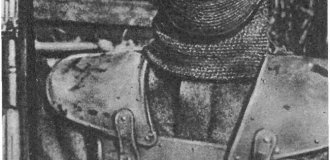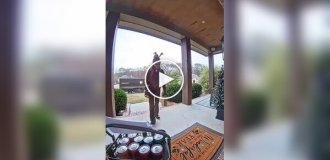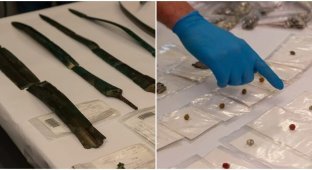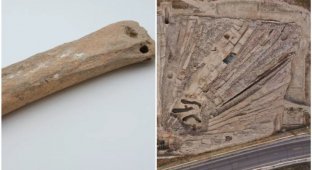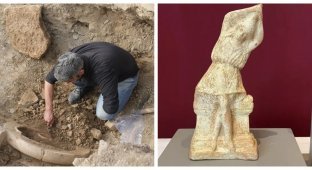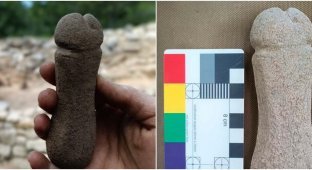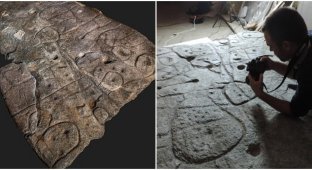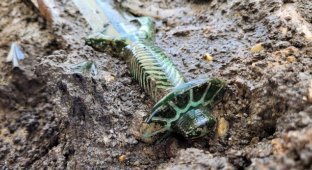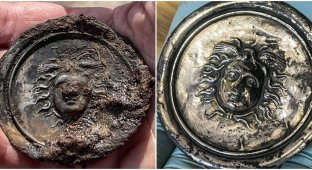A 4,200-year-old “zombie” grave found in Germany (4 photos)
A burial site near Oppin in Saxony-Anhalt sheds light on the superstitious practices of Bronze Age Europeans. The remains of a man were found in the grave, he was laid on his side, and his legs were pressed with a heavy stone so that he could not rise and wreak havoc among the living. 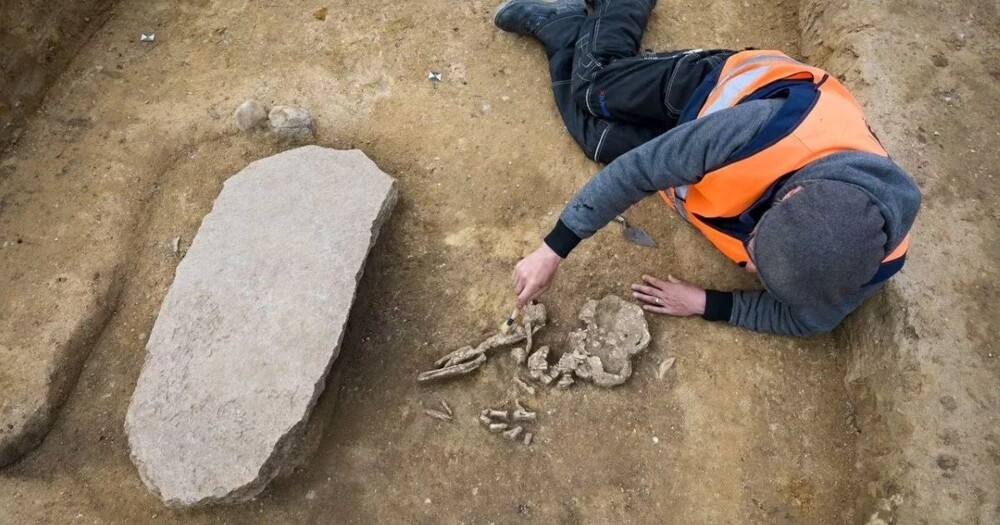
The discovery was made during excavations before the installation of the SuedOstLink underground cable line. 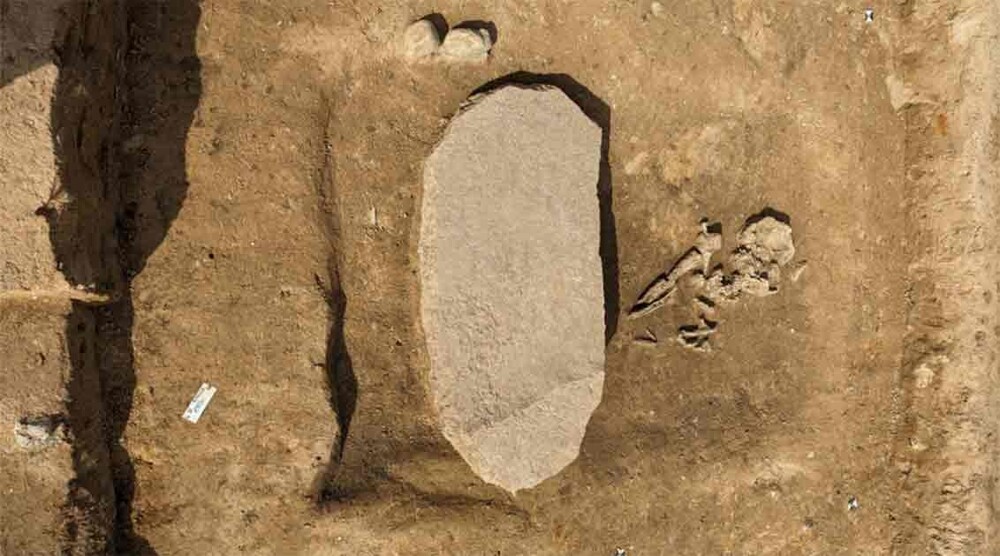
“This is an adult man, from 40 to 60 years old. He lies on his left side, with his legs bent, and facing east,” said excavation director Uwe Moos. “A large stone about a meter long, 50 centimeters wide and 10 centimeters high was placed across his shins. centimeters".
According to Moos, the deceased could have suffered from a serious illness or was unloved by others.
“The heavy slab should have prevented him from returning,” the expert added. 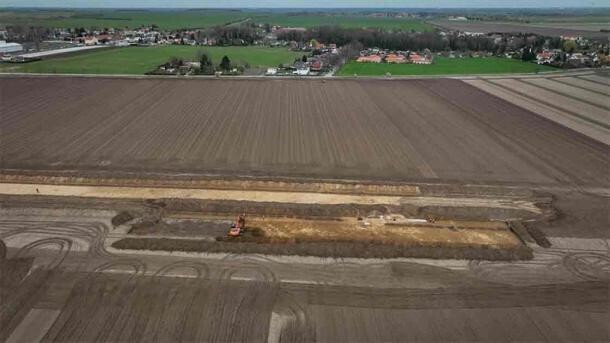
The person may have belonged to the Bell Beaker culture. It is named so because of the characteristic shape of the ceramics that archaeologists found in the burials.
Although stories of vampires, zombies and other undead were especially common in Europe during the Middle Ages, little is known about revenant superstitions during the Bronze Age.
“We know that even in the Stone Age people were afraid of revenants,” said archaeologist Susanne Friederich in an interview with German television channel MDR. “In those days, people believed that the dead sometimes tried to get out of their graves.” 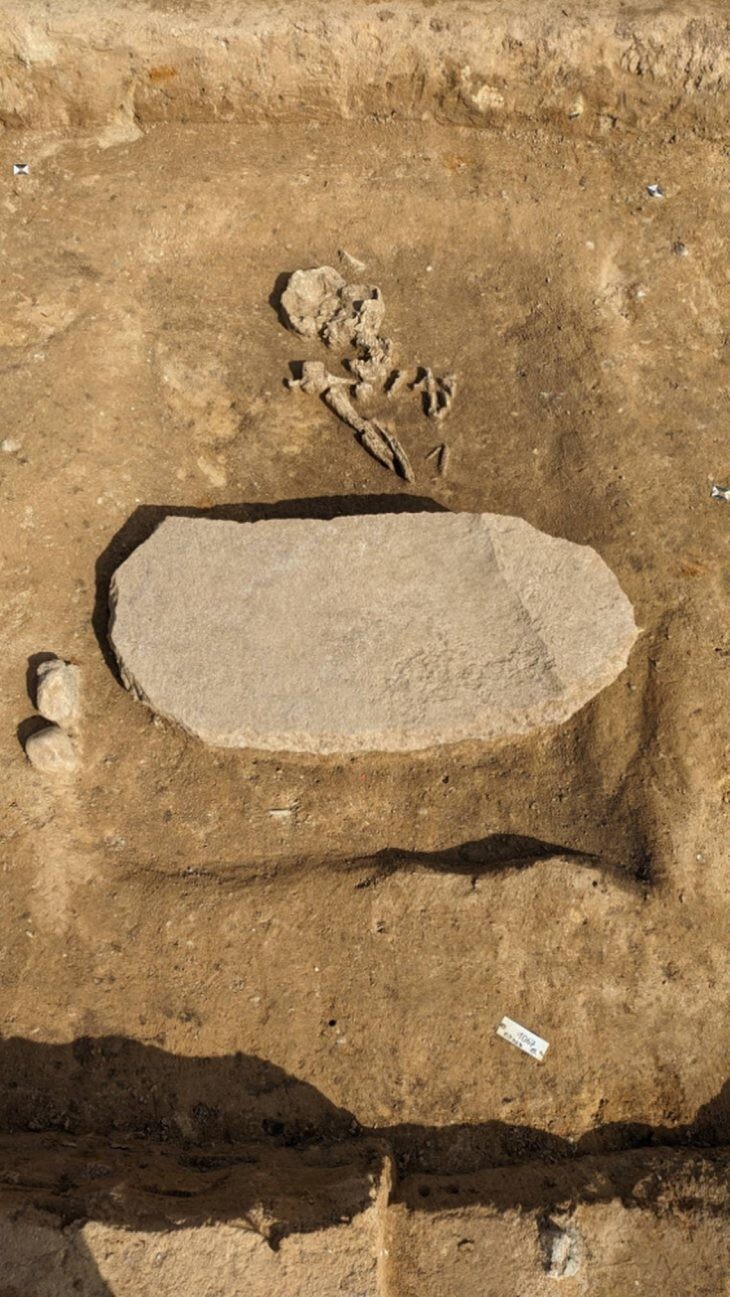
In many ancient mythologies, including those of the Celts and Norse, the zombie or revenant occupied a special place. The ancient Greeks also had a genuine fear of the undead, as evidenced by their custom of weighing down buried bodies. The Romans believed in the living dead and, according to numerous literary sources, placed stones in the mouths of the dead to prevent them from rising.
“There are graves where the deceased lies on his stomach. It was believed that this way he would bury himself deeper and deeper, instead of rising to the surface,” Friederich explained. “Some were also pierced with a spear to immobilize.”

